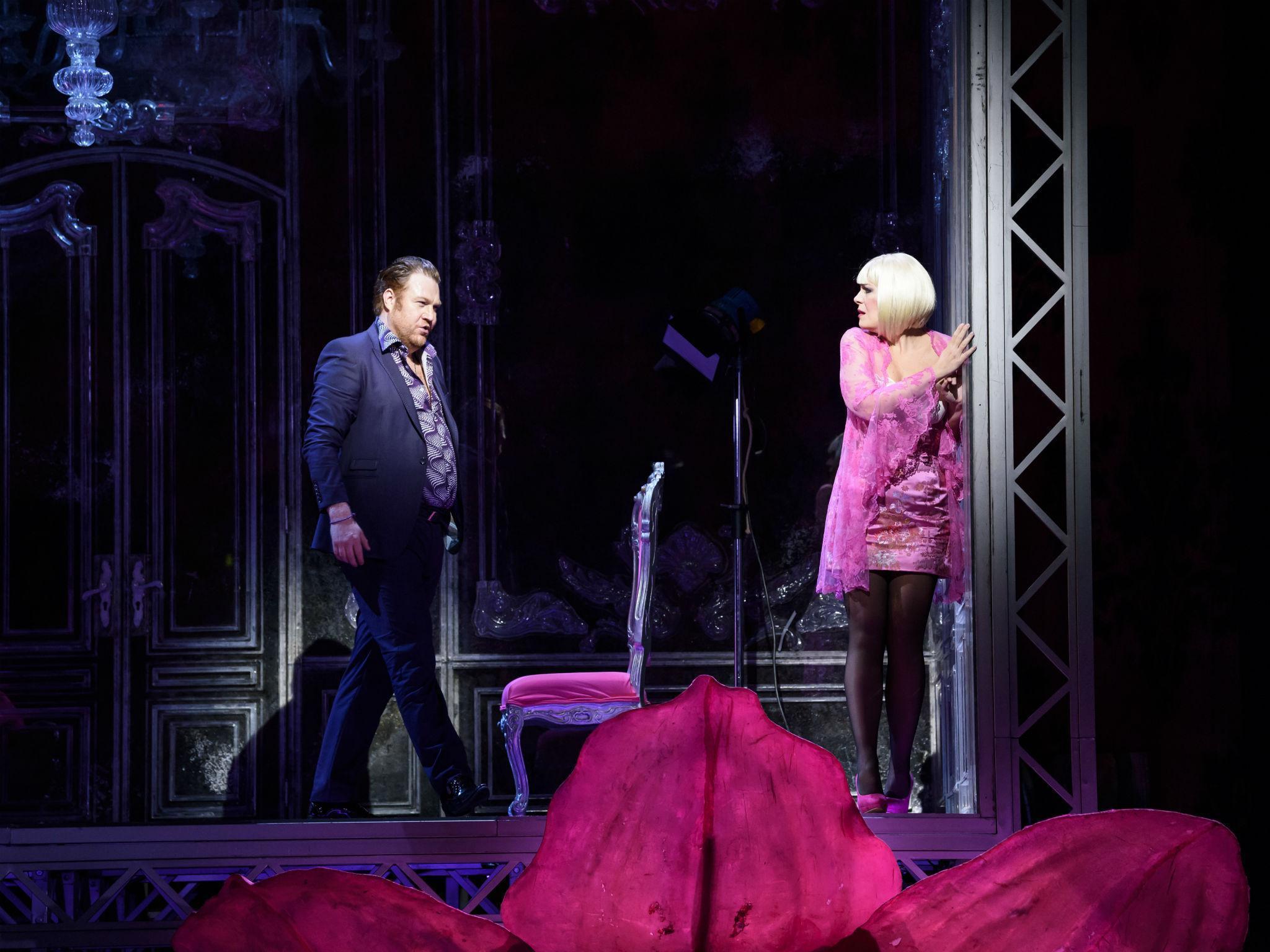Manon Lescaut, Royal Opera House, London, review: The last act sparks into a proper Puccini high-voltage death scene
Sondra Radvanovsky and Aleksandrs Antonenko star in the first revival of Jonathan Kent’s thought-provoking Royal Opera production

Your support helps us to tell the story
From reproductive rights to climate change to Big Tech, The Independent is on the ground when the story is developing. Whether it's investigating the financials of Elon Musk's pro-Trump PAC or producing our latest documentary, 'The A Word', which shines a light on the American women fighting for reproductive rights, we know how important it is to parse out the facts from the messaging.
At such a critical moment in US history, we need reporters on the ground. Your donation allows us to keep sending journalists to speak to both sides of the story.
The Independent is trusted by Americans across the entire political spectrum. And unlike many other quality news outlets, we choose not to lock Americans out of our reporting and analysis with paywalls. We believe quality journalism should be available to everyone, paid for by those who can afford it.
Your support makes all the difference.Jonathan Kent’s 2014 updating of Manon Lescaut into a welter of soft porn, sex-trafficking and reality TV remains largely as chilly as before, except for the last act which finally sparks into a proper Puccini high-voltage death scene. This is overwhelmingly thanks to wonderful soprano Sondra Radvanovsky, whose girlish tones as she steps from the people-carrier already herald the hedonist she will become, and whose solid technique and beauty of tone accompany every stage of Manon’s trajectory. Less convincing as her partner in love’s young dream is Aleksandrs Antonenko, a somewhat hard-edged Des Grieux lacking Kaufmann’s melting persuasiveness, only relaxing into the role atop the truncated flyover at the very end.
Bass Eric Halfvarson as Geronte the elderly admirer who sets her up in gilded luxury before denouncing her to the police leading to her deportation (aka eviction from reality TV), is reliable as ever, while tiny vignette from newcomer Emily Edmonds promises well. Levente Molnár makes a suitably robust brother Lescaut, emphasising the cynicism and tackiness at the heart of the sexual contracts that enmesh Manon.
Unsurprisingly, it is again Pappano who unstintingly delivers from the pit. Despite the narrative’s occasional muddliness (fruit of several librettists’ involvement), Pappano confidently shows Puccini flexing his dramatic muscles, evolving the musical tropes which would ensure his future success, and the raw talent that underpinned it.
Join our commenting forum
Join thought-provoking conversations, follow other Independent readers and see their replies
Comments